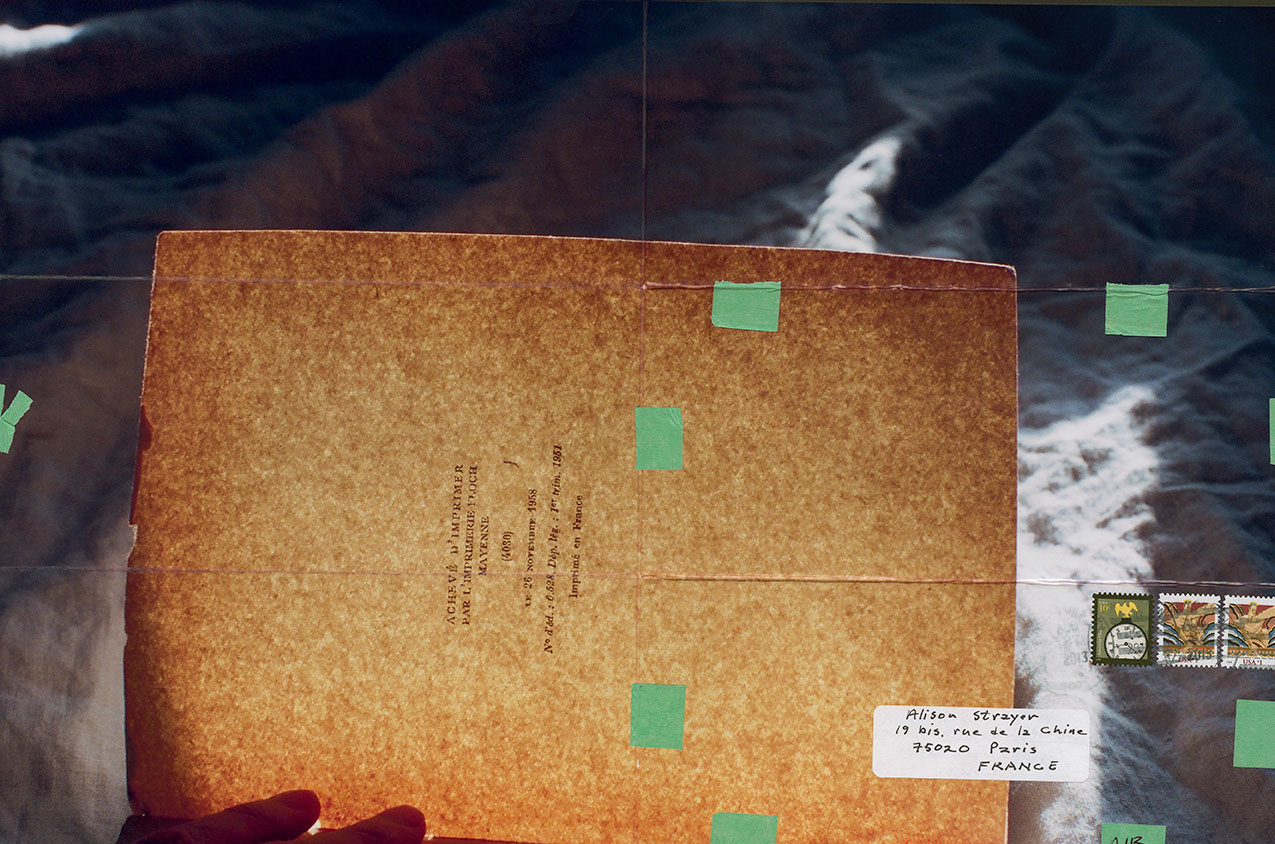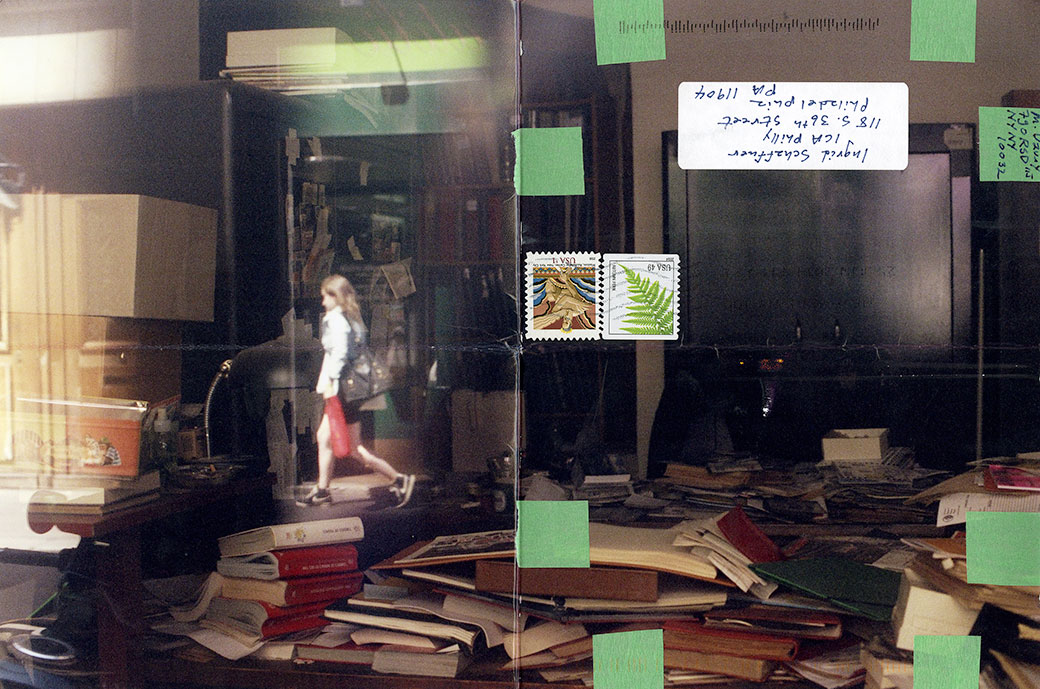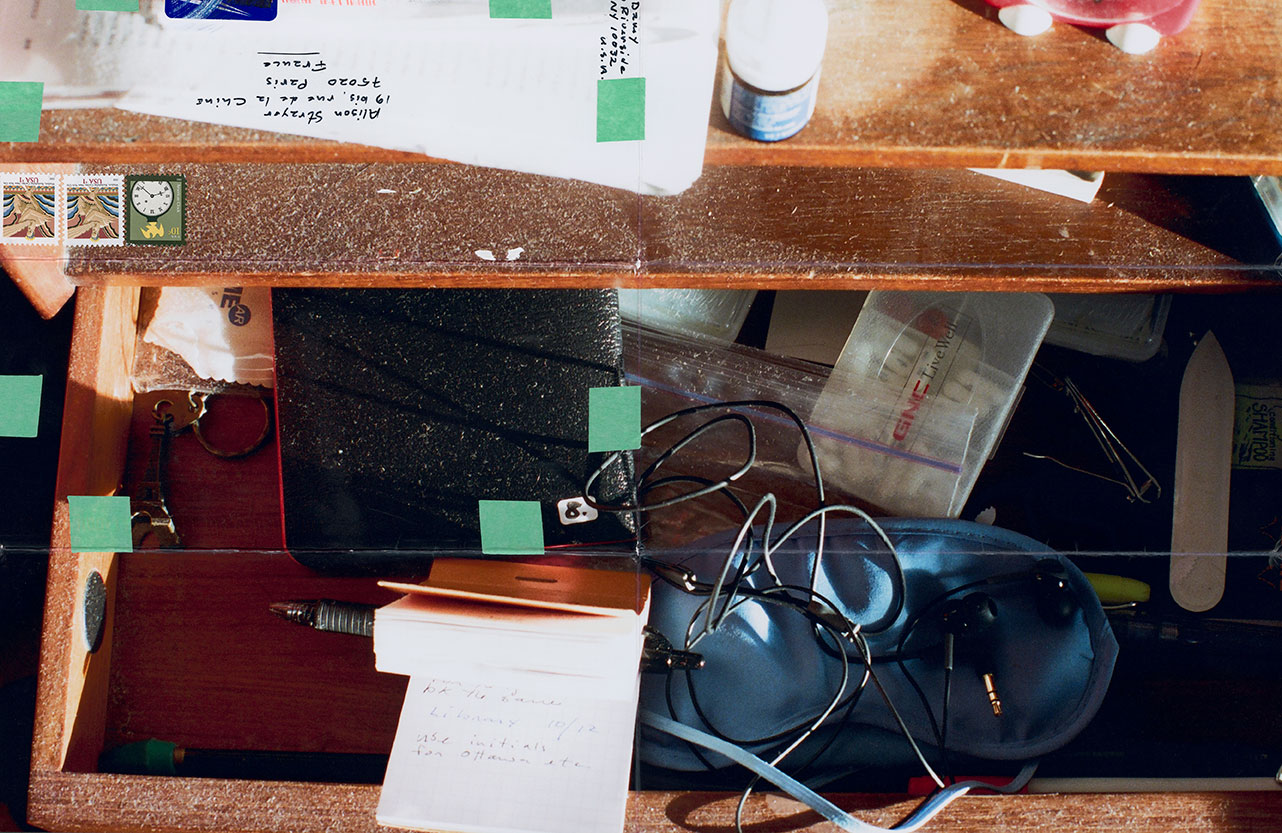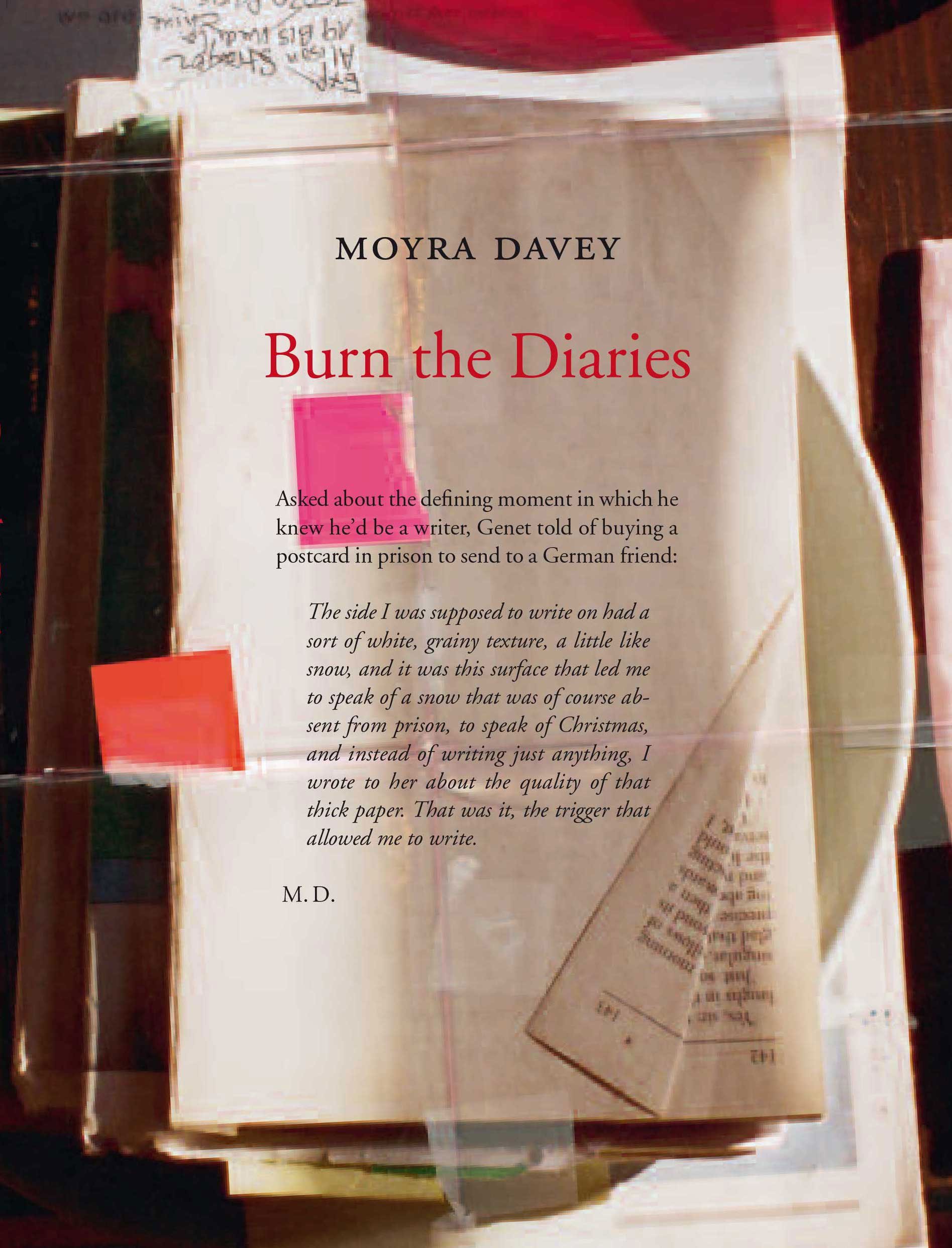The quotation from Jean Genet’s Prisoner of Love, featured by Moyra Davey on the cover of her recent book, beautifully sets up the experience of reading her text.1 Davey’s text is a compilation of passages culled from her diaries that wind the reader through Davey’s experience of reading Genet’s words—on the pleasures and rigors of reading, of holding a book, of holding pen in hand and putting it to paper—and the various permutations of a mind as it figures out what exactly to write about. Genet and Davey speak to the malleability and inaccuracy of language as a substitute for reality, the quasi-fiction created when attempting to record a moment in time: how the reader, like the writer, positions herself around words to reconstruct an experience marred by memory and perspective, or the lack thereof, on personal history. In the swirl between text and subtext, between the writer’s position and the reader’s, Genet and Davey reinforce the reality of paper.
Davey’s book is printed on a soft, creamy stock and interspersed with glossy leaves featuring reproductions of her photographs of photographs: the originals are the mailers she folds and sends to friends around the world. The book is the focus of Davey’s exhibition, opening September 19, 2014, at the Institute of Contemporary Art in Philadelphia. The exhibition also includes a display of the reproduced photographs, unfolding the book into space. Davey’s 2014 film My Saints rounds out the exhibition’s components and discloses aspects of the book into time. The book, photographs, and film together create a circle of inquiry in which the criminal-activist and writer Genet is the tether for a larger set of questions.

Moyra Davey. Dédicace II, 2013. Digital C-print; dimensions variable. Courtesy the artist and Murray Guy.

Moyra Davey. Red Bag, 2013. Digital C-print; dimensions variable. Courtesy the artist and Murray Guy.
Burn the Diaries, the title of both the book and exhibition, is a nod to Philip Larkin’s deathbed request to his wife. There is an inherent violence in the act of destroying a daily record of intimacy with oneself, and by publishing her diary passages in a book, Davey creates an effigy. The artist explained, “It’s a genuine dilemma: on the one hand, [diaries] are super useful to the creative process; on the other hand, [they have] a lot of junk and stuff that I would never want anyone to see. It’s very pragmatic, frankly. I often wonder at what point to do something about these things, to decide you are going to dispose of them.”2
When I asked Davey, “Why Genet?,” she cited Jean Pierre Gorin, the French New Wave (Nouvelle Vague) filmmaker who was also her professor at University of California, San Diego. Like Gorin, who in a recent conversation at the Brooklyn venue Light Industry said, “It’s a film about about…,” Davey’s inquiry is equally about Genet as it is about the process by which she came upon Genet as a subject. As Davey said: “How did I come to Genet, never having read him? How do you choose a subject? Do you let a subject choose you? Do you let accidents play a role in coming to that subject? And also questioning the ethics of focusing on a certain subject? It’s about Genet but also circling around these questions that have to do with writing a text and making a video. It’s a story but it’s also about coming to that story.”

Moyra Davey. Drawer, 2013, Digital C-print, tape, postage, ink; 12 x 18 inches. Courtesy the artist and Murray Guy.
Following Gorin, and other New Wave filmmakers, Davey’s transparency allows us to explore the space between the text and the writer’s construction of the narrative, between text and reader, between word and interpretation. The film My Saints is a collective portrait of friends and family as they interpret a passage from Genet’s journal—in which he watches a friend frantically search for money that he stole—and elaborate their own experiences of deception. Davey’s project is one in which a text becomes a source for delving into a rigorous scrutiny of one’s self.
The exhibition Moyra Davey: Burn the Diaries travels from the Museum Moderner Kunst Stiftung Ludwig, Vienna and opens at the Institute of Contemporary Art in Philadelphia on September 19, where it will be on view through December 28, 2014.
1. Moyra Davey: Burn the Diaries (ICA, University of Pennsylvania; Museum Moderner Kunst; Dancing Foxes Press, 2014).
2. This and all following quotes from the author’s telephone conversation with Davey in August 2014.




